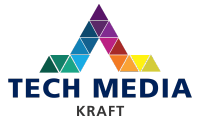In a world where technology is constantly evolving, keeping up with the latest jargon is more than just beneficial—it’s essential for developers. Mastering these critical tech terms not only sharpens your expertise but also prepares you to navigate the complex landscape of software development.
This guide delves into 10 vital tech terms every developer should be familiar with, highlighting their relevance and real-world applications.
1# Cloud Computing
Cloud Computing refers to the delivery of computing services—including servers, storage, databases, networking, software, and analytics—over the internet (“the cloud”). It allows businesses to access and store data on remote servers instead of local machines, offering flexibility, scalability, and cost efficiency.
Example: Amazon Web Services (AWS) and Microsoft Azure are popular cloud computing platforms that developers use to build, deploy, and manage applications.
Relevance: Understanding cloud computing is essential for developers working on web applications, mobile apps, or any project that requires scalable resources.
2# Natural Language Processing (NLP)
Natural Language Processing (NLP) is a branch of artificial intelligence that enables computers to understand, interpret, and respond to human language. It combines computational linguistics with machine learning to process and analyze large amounts of natural language data.
Example: NLP is used in applications like chatbots, voice assistants (like Siri or Alexa), and sentiment analysis tools.
Relevance: Developers integrating voice recognition or language translation features into their software need to grasp the fundamentals of NLP.
3# DevOps
DevOps is a set of practices that combines software development (Dev) and IT operations (Ops). The goal of DevOps is to shorten the development lifecycle while delivering high-quality software continuously. It fosters a culture of collaboration between developers and IT professionals to automate and integrate processes.
Example: Continuous Integration/Continuous Deployment (CI/CD) pipelines are a core component of DevOps practices, allowing for frequent and reliable software updates.
Relevance: Developers in agile environments should be familiar with DevOps to improve software delivery speed and efficiency.
4# Quantum Computing
Quantum Computing leverages the principles of quantum mechanics to process information in ways that classical computers cannot. Quantum computers use qubits instead of bits, enabling them to perform complex calculations at unprecedented speeds.
Example: While still in its early stages, quantum computing has potential applications in cryptography, material science, and solving optimization problems.
Relevance: Developers interested in cutting-edge technology should follow quantum computing advancements, as it could revolutionize fields requiring high computational power.
5# Blockchain
Blockchain is a decentralized digital ledger that records transactions across multiple computers. It ensures data security and transparency by making it nearly impossible to alter information once it’s recorded. Blockchain is the technology behind cryptocurrencies like Bitcoin and has applications in various industries, including finance, supply chain, and healthcare.
Example: Ethereum is a blockchain platform that allows developers to build decentralized applications (DApps) using smart contracts.
Relevance: Understanding blockchain is crucial for developers working on secure, transparent, and decentralized applications.
6# Internet of Things (IoT)
Internet of Things (IoT) refers to the network of interconnected devices that communicate and exchange data over the internet. IoT devices range from smart home gadgets like thermostats and security cameras to industrial sensors and connected vehicles.
Example: Developers working on IoT projects might use platforms like Arduino or Raspberry Pi to build prototypes.
Relevance: With the growing demand for smart devices, developers should be familiar with IoT technologies to create innovative solutions.
7# Artificial Intelligence (AI)
Artificial Intelligence (AI) is the simulation of human intelligence in machines. AI enables systems to perform tasks that typically require human intelligence, such as learning, reasoning, problem-solving, and decision-making.
Example: AI-powered tools like recommendation engines on e-commerce sites or personalized content suggestions on streaming platforms rely on machine learning algorithms.
Relevance: AI is transforming industries, and developers need to understand AI concepts to build intelligent systems and applications.
8# Cybersecurity
Cybersecurity involves protecting systems, networks, and data from digital attacks. As cyber threats evolve, robust security measures are essential to safeguard sensitive information from unauthorized access, breaches, and other cyber risks.
Example: Implementing multi-factor authentication (MFA) and encryption are common cybersecurity practices.
Relevance: Developers must prioritize cybersecurity in their projects to ensure the safety and integrity of user data.
9# Microservices
Microservices is an architectural style that structures an application as a collection of loosely coupled services. Each microservice focuses on a specific function and can be developed, deployed, and scaled independently.
Example: A large e-commerce platform might use microservices for handling payments, user authentication, and product catalog management separately.
Relevance: Developers building scalable, resilient, and maintainable applications should understand microservices architecture.
10# Machine Learning (ML)
Machine Learning (ML) is a subset of AI that enables computers to learn from data and improve their performance without explicit programming. ML algorithms analyze patterns in data to make predictions, automate tasks, and provide insights.
Example: Spam filters in email services and recommendation systems on social media platforms are powered by machine learning.
Relevance: Developers working with big data, predictive analytics, or automation should be well-versed in machine learning techniques.
Conclusion
Understanding these 10 essential tech terms is vital for developers navigating today’s tech-driven world. From cloud computing to machine learning, these concepts are shaping the future of technology and business.
Staying informed and continuously learning about these terms will not only enhance your skill set but also position you as a valuable asset in the ever-evolving tech landscape.
I hope you find the above content helpful. For more such informative content please visit TechMediaKraft.

